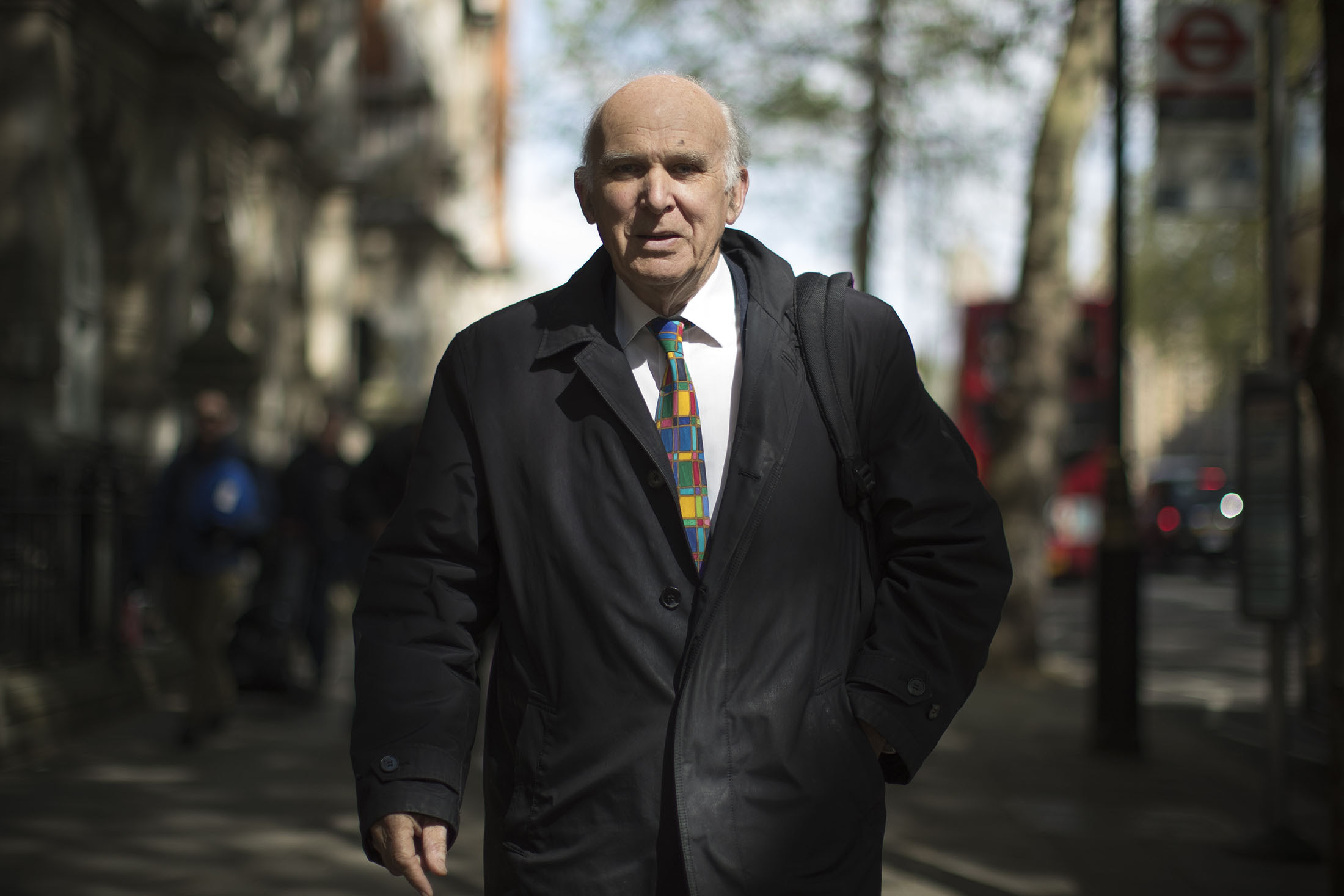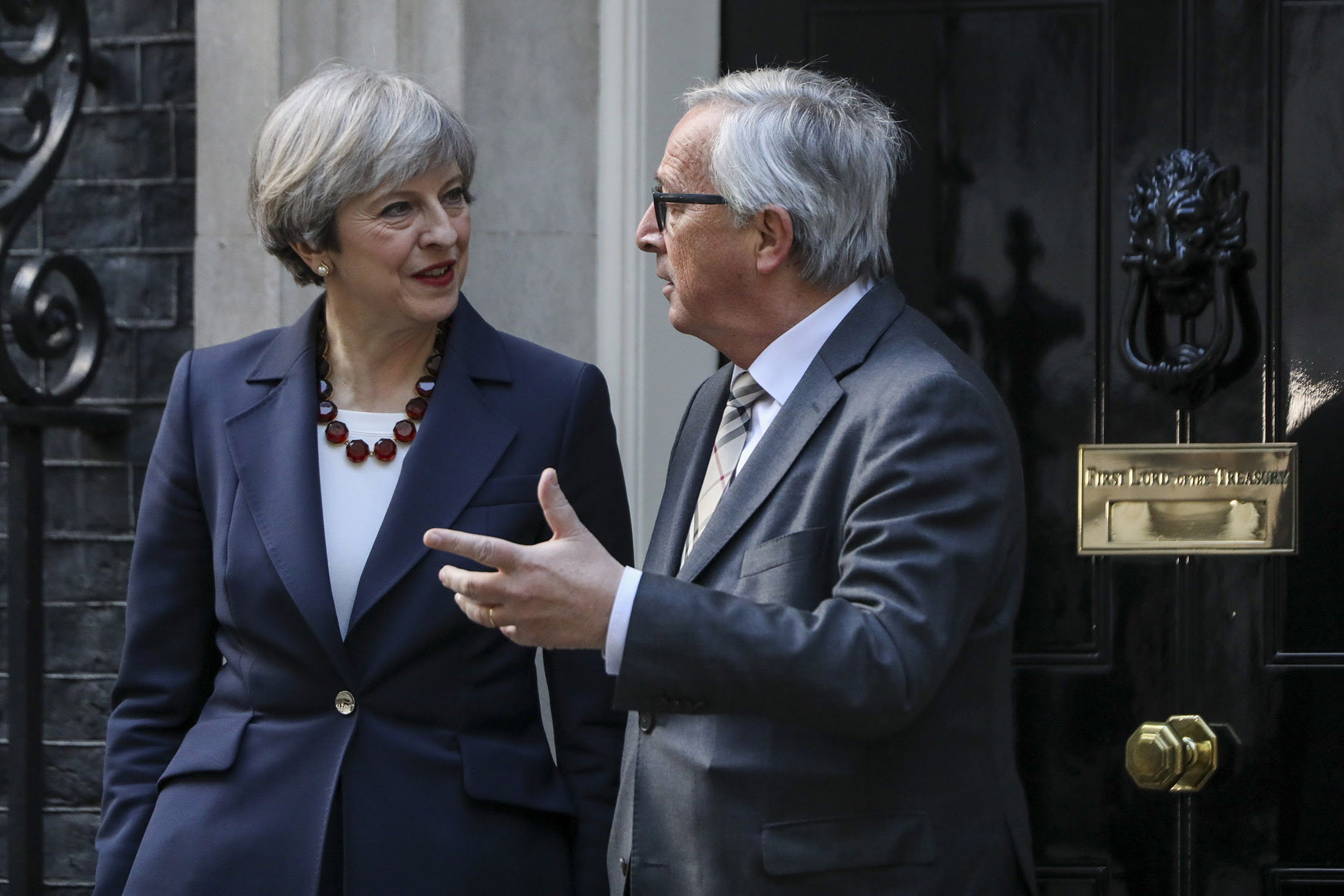Glimmers of hope
It’s not all doom and gloom in Brussels.
While Brexit negotiators acknowledged frustration on both sides on the second day of negotiations, signs of progress are also emerging, Bloomberg’s Ian Wishart writes. Officials spent the day delving into the details of the issues they need to make headway on before an October summit of leaders. Several hours were devoted to ideas on keeping the Irish border as open as possible, as well as the rights of European nationals in the U.K.

The past two days show that Britain’s divorce payment to the European Union remains one of the biggest sticking points, people familiar with the talks said. Both sides are barely going further than trying to understand each others’ positions, quizzing each other as they seek to tease out common ground, said the people, speaking on condition of anonymity.
Still, standing accused by EU negotiator Michel Barnier of wasting time, the U.K. has sought to regain some of the initiative this week by spelling out its stance on key issues. The EU has said it must be persuaded of “sufficient progress” in the negotiations on the U.K. payment, citizens’ rights and the Irish border before it will allow talks to move on to future trade ties — something both sides want to do in October.
The U.K. government’s latest position is that if it can convince EU negotiators that it has signed up to the principles of a financial settlement and that Britain won’t go back on its word, that will be enough, according to the people familiar with the discussions. Talks in Brussels are scheduled to last until Thursday, when U.K. negotiators will return to London, leaving the European Commission to brief officials from the 27 countries on progress. A third round of negotiations is planned for the final week of August.
The Clock Is Ticking
Despite small signs of progress, U.K. politicians — and investors — remain in countdown mode before the crucial October summit.
With that gathering due to start in exactly three months, as of today there is a new way of gauging what the market thinks Brexit will look like by then: the three-month measure of pound volatility, which shows bets on future swings in the pound in either direction, now covers the October summit, Anooja Debnath and Alex Morales write. Any perceived move away from the status quo in the talks could spark a spike in volatility.

The difficulty for pound traders is judging what Brexit will look like by then, given the see-sawing nature of negotiations. A German election in September and political feuds in the U.K. make it even harder to predict.
The summit won’t be the only event generating political risk that month. Before it, May must navigate her Conservative Party’s annual conference in early October, when simmering resentment over her failure to win a majority in June’s election may come to a head.
The summit won’t be the only event generating political risk that month. Before it, May must navigate her Conservative Party’s annual conference in early October, when simmering resentment over her failure to win a majority in June’s election may come to a head.
Reverse Foxtrot
One man hoping to capitalize on any weakness in the Tory party is Vince Cable, the lawmaker who predicted Britain’s financial crash, served in the U.K. cabinet, and performed a foxtrot on the BBC’s “Strictly Come Dancing.”

Now the veteran politician is seeking to take over the political center ground once held by former Labour Prime Minister Tony Blair and ex-Conservative premier David Cameron. His mission? Breathe life into a movement to reverse Brexit and convince voters it’s not too late to change their mind.
“It’s becoming increasingly unlikely that we will have an orderly and moderate Brexit,” Cable said in an interview. “It looks increasingly as if either Brexit will never happen, or if it does happen, will be in a highly disorderly and damaging form.”
The former business secretary, 74, is the sole candidate to lead the Liberal Democrats, the traditional third party of British national politics and the most pro-European. If no one else throws in their hat by 4 p.m. London time on Thursday, Cable will succeed Tim Farron as leader.
Building Bridges
Theresa May will launch a new business advisory group Thursday, her office said, as her government tries to build bridges with financial and trade bodies during Brexit negotiations.
May will chair the first in a regular series of meetings of the business council in her official Downing Street residence, with the forum aiming to give business a direct link to the PM and her senior team running the government’s Brexit strategy.
Chancellor of the Exchequer Philip Hammond, Business Secretary Greg Clark, and junior Brexit minister Robin Walker will join Thursday’s meeting, along with business figures Ralf Speth from Jaguar Land Rover, Tesco’s Dave Lewis and Prudential’s Paul Manduca.
Stephen Martin from the Institute of Directors, Carolyn Fairbairn from the Confederation of British Industry, and Mike Cherry from the Federation of Small Businesses will also be among the guests, May’s office said. They have a lot of unanswered questions.
Brexit in Brief
- May must “raise her game” in consulting with the semi-autonomous governments of Scotland, Wales and Northern Ireland on Brexit, a House of Lords panel says
- Moody’s says the risk that the U.K. will tumble out of the EU in two years without a Brexit deal is “substantial”
- Theresa May faces parliamentary questions today for the last time before summer recess
- The rest of Europe is quickly moving on from Brexit, if their newspapers are any guide
- The Bloomberg Brexit Barometer rose on Tuesday, after a report showed U.K. inflation unexpectedly slowed in June. Pound traders were less impressed, however, with sterling falling from a 10-month high.
And Finally...
With Brexit talks in Brussels still in their early stages, both sides are making efforts to get along. On Tuesday, many of the negotiators spent their lunch hour eating together — munching on salad served in the European Commission. A catering hiccup over the coffee left some with a bitter taste, but it was rectified by Tuesday with the help of some chocolate biscuits.


Comentarios
Publicar un comentario